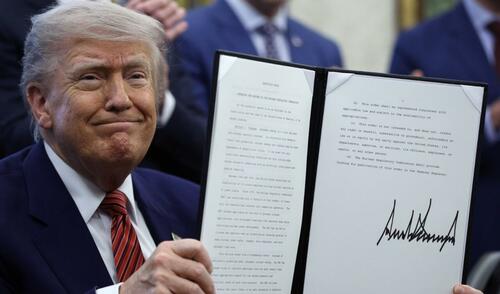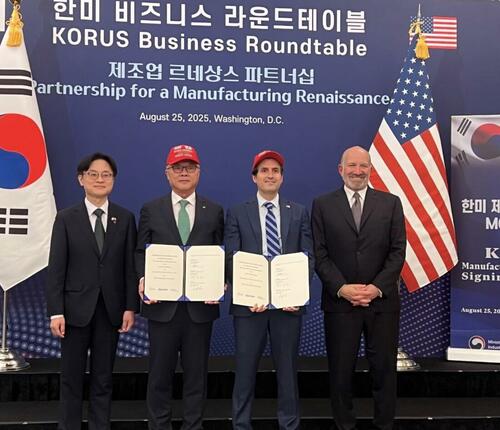DOE Meets With Nuclear Companies Today To Kick Off Defense Production Act Consortium
Today is October 14, and as the Office of Nuclear Energy wrote back in August, should mark the first meeting of the Defense Production Act Consortium who is seeking agreements with U.S. nuclear companies as part of an effort to rebuild the nation’s nuclear fuel supply chain
The consortium, first announced by DOE’s Office of Nuclear Energy on August 22, marks a major step in strengthening domestic nuclear fuel cycle capacity and reducing America’s dependence on foreign sources of enriched uranium.
The DPA Consortium was created in accordance with President Trump’s Executive Order on Reinvigorating the Nuclear Industrial Base and will use the authorities of the Defense Production Act to coordinate industry efforts across the nuclear fuel cycle. Under the program, DOE will establish voluntary agreements with U.S. companies involved in mining, milling, conversion, enrichment, deconversion, fuel fabrication, recycling, and reprocessing. The goal is to ensure the availability of reliable nuclear fuel for the nation’s reactors and to support the growth of a secure, independent nuclear energy sector.
“There are major gaps in our nuclear fuel cycle infrastructure that leave the United States heavily dependent on foreign sources of enriched uranium,” said Acting Assistant Secretary Mike Goff when the initiative was announced in August. “By leveraging authorities in the Defense Production Act, DOE is able to take swift action to bring all parties to the table to accelerate our path toward a more secure and independent energy future.”
DOE issued an interim final rule this summer that outlines the standards and procedures for executing voluntary agreements under Section 708 of the DPA, which provides a defense from antitrust laws when specific criteria are met. The rule will take effect 30 days after its publication in the Federal Register, and DOE invited public comments within the same timeframe. Since then, the Office of Nuclear Energy has been engaging with industry participants to identify key players and establish both near- and long-term objectives for the consortium’s work.
The first meeting taking place today is expected to focus on mapping out critical supply chain gaps, from uranium conversion and enrichment to fabrication and recycling. Participants will begin discussions on how to coordinate timelines for expanding capacity, share essential data across sectors, and identify regulatory or financial bottlenecks that could be addressed using DPA authorities. The meeting represents the beginning of a sustained effort to organize and align the nuclear fuel industry in a way that balances national security needs with commercial growth.
The DPA Consortium will operate separately from existing DOE programs for low-enriched uranium (LEU) and high-assay low-enriched uranium (HALEU) procurement and allocation, but its work may inform future programmatic decisions.
As the United States looks to expand clean, reliable nuclear power as part of its energy future, the DPA Consortium stands as a key mechanism for aligning industry collaboration, government support, and strategic investment in the nation’s nuclear fuel infrastructure.
As we noted weeks ago, readers of ZeroHedge are well aware that we believe Centrus Energy could be the next obvious candidate for the U.S. government to cozy up to and acquire a stake (similar to how the Trump admin recently did with rare earth company MP Materials and of course Intel, both of which we correctly predicted ahead of time, here and here). We have also followed ASP Isotopes closely, which yesterday issued a business update and its largest-ever supply contract for enriched silicon-28.
About a month ago Centrus announced it had signed a Memorandum of Understanding (MOU) with Korea Hydro & Nuclear Power (KHNP) and POSCO International to explore potential investment in expanding its enrichment plant in Piketon, Ohio.
The signing ceremony drew high-level attention, with U.S. Secretary of Commerce Howard Lutnick and Korea’s Minister of Trade, Industry and Energy Kim Jung-kwan both in attendance. The deal underscores a growing U.S.–Korea partnership in civilian nuclear energy — and highlights the demand for secure, non-Russian sources of uranium enrichment.
Tyler Durden
Tue, 10/14/2025 – 13:00ZeroHedge NewsRead More






 R1
R1
 T1
T1


